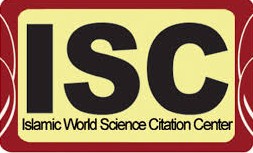الحماية الجنائية للجينوم البشري "التعديل الجيني البشري إنموذجاً"
DOI:
https://doi.org/10.35246/fcs6yg41الكلمات المفتاحية:
الجينوم البشري، تعديل الجينوم البشري، الحماية القانونية، جرائم الجينوم البشريالملخص
الحماية القانونية للجينوم البشري تعد قضية أخلاقية تتعلق بمستقبل الوجود البشري، بعد الكشف عن الخريطة الجينية البشرية، ازدادت التجارب العلمية والبحوث المتعلقة بالجينوم البشري، وخاصة التطبيقات السلبية للهندسة الوراثية التي تنتهك حقوق الإنسان الاساسية، لا سيما الحق في كرامة الانسان. أن هذه الممارسات تعد تحديات حقيقية لوجود وتنوع أجيال الحاضر والمستقبل. لذلك ، فإن وجود قواعد قانونية على المستويين الوطني والدولي ضرورة مطلقة لحظر هذه التهديدات وتحديد المسؤولية المدنية والجنائية لمن ينتهك هذه القواعد.
التنزيلات
المراجع
Books
I. Mahran, Mahmoud Abdel Rahim. Sharia and Legal Provisions for Intervention in the Factors of Heredity and Reproduction. 1st ed. Egypt: Modern Renaissance House, 2001.
II. Rizk, Hani Khalil. A Brief History of the Universe: From the Big Bang to Human Cloning. 1st ed. Damascus: Dar Al Fikr, 2003.
III. Smith, Jenna. The Era of Postgenomics. Вестник Росздравнадзора. 1st ed. Vol. 1469. Egypt: National Center for Translation, 2010.
Dissertation and Theses.
i. Giudicelli, André. “Génétique Humaine et Droit : À La Redécouverte de l’homme.” Angewandte Chemie International Edition, 6(11), 951–952. : Université de Poitiers. UFR, 1993.
ii. Hawa, Tariq Abdullah Muhammad Abu. “Legal Repercussions of Artificial Reproduction, ‘a Comparative Study,.’” Mansoura University, 2009.
iii. Mutair, Mahdi Kazem. “International Protection of the Human Genome.” Baghdad Universit, 2023.
iv. National Academies of Sciences, Engineering, and Medicine; National Academy of Medicine; National Academy of Sciences; Committee on Human Gene Editing: Scientific, Medical, and Ethical Considerations. Human Genome Editing: Science, Ethics, and Governance. Human Genome Editing. Washington (DC): National Academies Press (US). 1st ed. Washington (DC), 2017. https://doi.org/10.5840/ncbq201717110.
Research Paper
i. Araki, Motoko, and Tetsuya Ishii. “International Regulatory Landscape and Integration of Corrective Genome Editing into in Vitro Fertilization.” Reproductive Biology and Endocrinology 12, no. 1 (2014): 1–12. https://doi.org/10.1186/1477-7827-12-108.
ii. Beers, Britta C van. “Rewriting the Human Genome , Rewriting Human Rights Law ? Human Rights , Human Dignity , and Human Germline Modification in the CRISPR Era.” Journal of Law and the Biosciences 7(1), no. lsaa006 (2020). https://doi.org/10.1093/jlb/lsaa006.
iii. BERNARDI, Marie-Josée. “Diversité Génétique Humaine : Éléments d’une Politique.” Thémis à l’adresse Suivante 35 (2001): 327–406. https://ssl.editionsthemis.com/uploaded/revue/article/rjtvol35num1_2/bernardi.pdf.
iv. Christian Hervé, Michèle S. Jean, Patrick A. Molinari, Marie-Angèle Grimaud, Emmanuelle Laforêt, and Avec. “Généticisation et Responsabilités.” In Cet Ouvrage Est Issu Des Actes Du Septième Séminaire d’experts Franco-Québécois de l’Institut International de Recherche En Éthique Biomédicale (IIREB). France: à l’Université René-Descartes (Paris V), 2008. http://ethique.sorbonne-paris-cite.fr/sites/default/files/dalloz_2008_0.pdf.
v. Cyranoski, David. “China Set to Introduce Gene-Editing Regulation Following CRISPR-Baby Furore.” Nature- National lLbrary of Medicine, 2019. https://doi.org/10.1038/d41586-019-01580-1
vi. Dahm, Ralf. “Friedrich Miescher and the Discovery of DNA.” Developmental Biology 278, no. 2 (2005): 274–88. https://doi.org/10.1016/j.ydbio.2004.11.028.
vii. Mutair, Mahdi, and Husam Abdul Ameer. 2023. “Standard Protection for the Human Genome”. Journal of Legal Sciences 37 (August): 667-97. https://doi.org/10.35246/jols.v38i2.690.
viii. Khalaf, Hussam Abdel Amir, and And Muhammad Ismail Al-Arkawi, (2021). “Safeguarding the Intangible Heritage During Armed Conflict”. Journal of Legal Sciences 36 (December): 337_362. https://doi.org/10.35246/jols.v36i0.420.
ix. Khalaf, Hossam Abdel Amir. “International Protection of the Human Genome.” Al-Haqiqah Journal for Humanities and Social Sciences 4, no. 20 (2021): 1–26. file:///C:/Users/SFM/Downloads/الحماية-الدولية-للجينوم-البشري (1).pdf.
x. Majeed, Sahar Fouad, Artificial Intelligence Technology in the Field of Modern Forensic Evidence “Brain Fingerprinting as a Model,” Vol.16, No.3, 2024. ( 513-530). https://doi.org/10.62271/pjc.16.3.513.530
xi. Muhammad, Ahmed Saad. “Constitutional Principles Relating to the Human Genome.” Journal of Legal and Economic Studies 8, no. 0 (2022): 1–45. https://doi.org/10.21608/jdl.2022.258901 .
xii. Musa, Adnan Abbas. “The Moral Responsibility of the International Community Regarding Human Cloning.” Journal of Political Science 43 (2011): 75–104. https://doi.org/https://doi.org/10.30907/jj.v0i43.233.
xiii. Pasha, Hassan Shamsi. “Genetics and Genetic Engineering.” Islamic Culture Magazine 13, no. 1 (2017): 199–270. https://www.asjp.cerist.dz/en/article/156137 .
xiv. Rudge, D W. “The Man Who Invented the Chromosome.” Heredity 97, no. 2 (2006): 136–136. https://doi.org/10.1038/sj.hdy.6800856.
xv. Sergeev, Danil. “The First Case of Human Genome Editing: Criminal Law Perspective.” BRICS Law Journal 6, no. 4 (2019): 114–33. https://doi.org/10.21684/2412-2343-2019-6-4-114-133.
xvi. Song, Lingqiao, and Yann Joly. “After He Jianku : China ’ s Biotechnology Regulation Reforms.” Medical Law International 21(2), no. January (2021): 174–91. https://doi.org/10.1177/0968533221993504.
التنزيلات
منشور
إصدار
القسم
الرخصة

هذا العمل مرخص بموجب Creative Commons Attribution 4.0 International License.
-
:حقوق الطبع والنشر والترخيص
بالنسبة لجميع البحوث المنشورة في مجلة العلوم القانونية، يحتفظ الباحثون بحقوق النشر. يتم ترخيص البحوث بموجب ترخيص Creative Commons CC BY 4.0 المفتوح ، مما يعني أنه يجوز لأي شخص تنزيل البحث وقراءته مجانًا. بالإضافة إلى ذلك ، يجوز إعادة استخدام البحث واقتباسه شريطة أن يتم الاستشهاد المصدر المنشور الأصلي. تتيح هذه الشروط الاستخدام الأقصى لعمل الباحث وعرضه.:إعادة إنتاج البحوث المنشورة من الناشرين الآخرين
من الضروري للغاية أن يحصل الباحثون على إذن لإعادة إنتاج أي بحث منشورة (أشكال أو مخططات أو جداول أو أي مقتطفات من نص) لا يدخل في نطاق الملكية العامة أو لا يملكون حقوق نشرها. يجب أن يطلب الباحثون إذنًا من مؤلف حقوق النشر (عادة ما يكون الناشر).يطلب الإذن في الحالات التالية:
بحوثك الخاصة المنشورة من قِبل ناشرين آخرين ولم تحتفظ بحقوق النشر الخاصة بها.
مقتطفات كبيرة من بحوث أي شخص أو سلسلة من البحوث المنشورة.
استخدم الجداول والرسوم البيانية والمخططات والمخططات والأعمال الفنية إذا لم يتم التعديل عليها.
الصور الفوتوغرافية التي لا تملك حقوق لنشرها.لا يطلب الإذن في الحالات التالية:
إعادة بناء الجدول الخاص بك مع البيانات المنشورة بالفعل في مكان آخر. يرجى ملاحظة أنه في هذه الحالة يجب عليك ذكر مصدر البيانات في شكل "بيانات من ..." أو "مقتبس من ...".
تعتبر عروض الأسعار القصيرة معقولة الاستخدام العادل ، وبالتالي لا تتطلب إذنًا.
الرسوم البيانية، الرسوم البيانية، المخططات، الأعمال الفنية التي أعاد الباحث رسمها بالكامل والتي تم تغييرها بشكل ملحوظ إلى درجة لا تتطلب الاعتراف.
الحصول على إذن
لتجنب التأخير غير الضروري في عملية النشر ، يجب أن تبدأ في الحصول على أذونات في أقرب وقت ممكن. لا يمكن لمجلة العلوم القانونية نشر بحث مقتبس من منشورات أخرى دون إذن.قد يمنحك مالك حقوق الطبع والنشر تعليمات بشأن شكل الإقرار الواجب اتباعه لتوثيق عمله ؛ بخلاف ذلك ، اتبع النمط: "مستنسخ بإذن من [المؤلف] ، [كتاب / المجلة] ؛ نشره [الناشر] ، [السنة]." في نهاية شرح الجدول ، الشكل أو المخطط.











